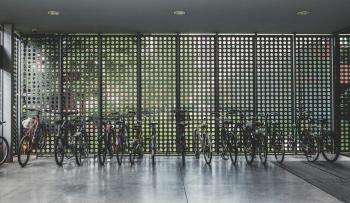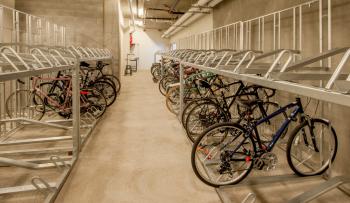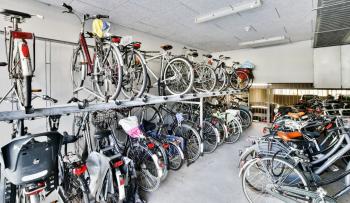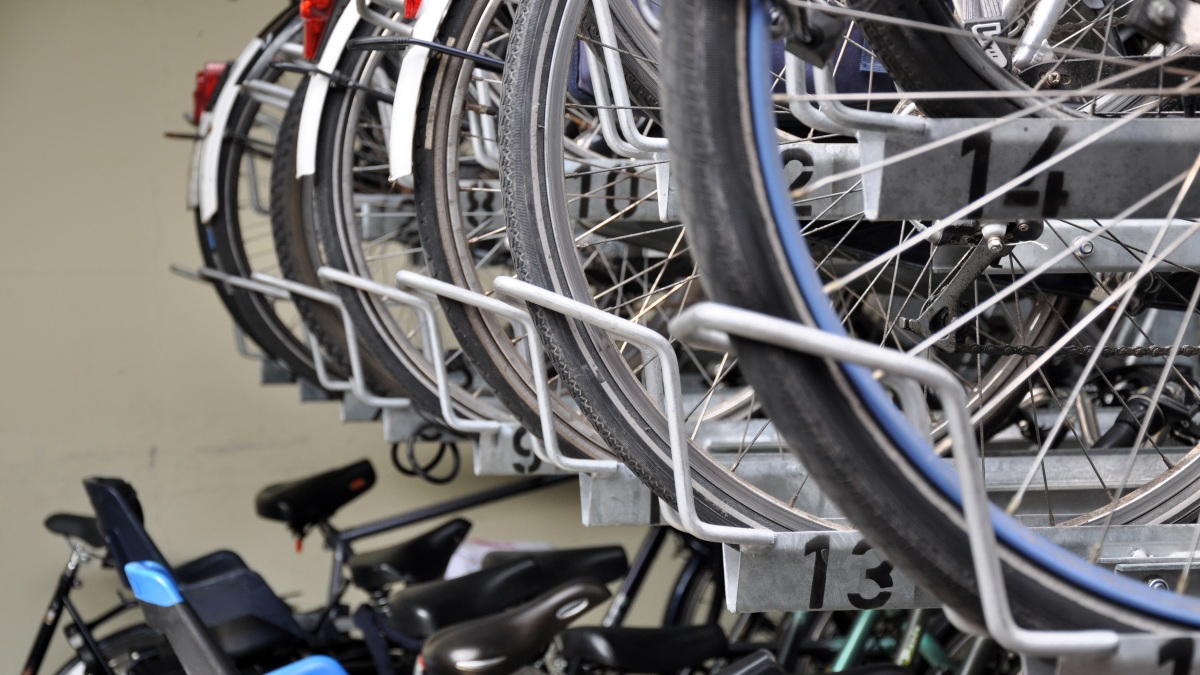
EPBD: EU Member States affirm two bicycle parking spaces in every new residential building unit
Revision of the Energy Performance of Buildings Directive takes major step forward with EU Member States supporting proposal to require bicycle parking in every new and renovated residential and non-residential building – but challenges remain.
On Tuesday 25 October, the mandatory integration of dedicated bicycle parking spaces into the design of every building took a major legislative step forward. By finally adopting their position on the revision of the Energy Performance of Buildings Directive (EPBD), EU Member States gave their support to the European Commission’s proposal from December 2021, which called to provide for “at least two bicycle parking spaces for every residential building unit” in new residential buildings. With the average household size being 2.3 in the EU, this would mean that in principle almost every person moving into a new residential building would enjoy access to a bicycle parking space.
Lack of easily accessible and secure bicycle space has been identified as a major deterrent to daily cycling. The European Cyclists’ Federation (ECF) therefore strongly applauds this decision as a major step into the right direction. But as 85-95% of the buildings that exist today will still be standing in 2050, it is just as vital to get bicycle parking right in existing buildings.
Here Member States also support the same approach of two bicycle parking spaces for every residential building unit, but with the added caveat that Member States only have to ensure “as many spaces as appropriate” when it is deemed that the provision of two bicycle parking spaces is not feasible during the renovation process. While it seems plausible to allow for some sort of opt-out clause, the process and possible reasons for justification, such as the lack of physical space, need to be defined in much more detail to avoid misuse.
The bicycle parking provision would kick-in for all types of new and existing residential buildings with more than three car parking spaces.
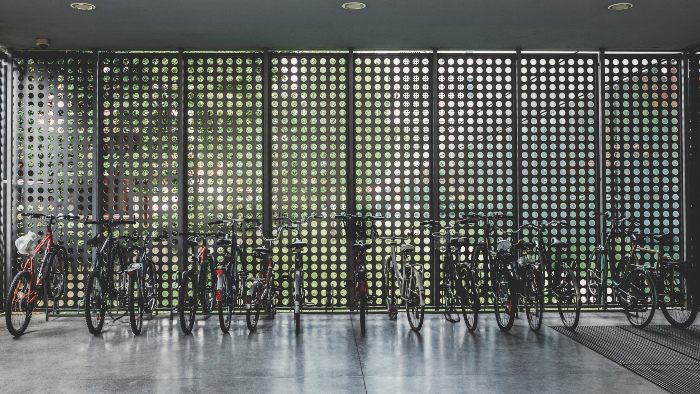
(Source: iStock.com)
The Directive will also address non-residential buildings such as office buildings, shopping centers and cinemas. Here the Council of the EU wants to amend the Commission’s approach. Whereas the Commission proposed to have one bicycle parking space for every car parking space, Member States want “bicycle parking spaces represent(ing) at least 15 % of the average user capacity of the building”. The Council did not define the meaning of “average user capacity” which leaves the room open for interpretation. The percentage figure may have been borrowed from French legislation which calls for, among others, enough bicycle parking space for 15 % of employees in office or industrial buildings.
This provision would kick-in for every new non-residential building with more than five car parking spaces; and in all existing non-residential buildings with more than 20 car parking spaces, with a deadline of 1 January 2027. Again, however, there is an opt-out clause attached to it. Member States would be allowed to adjust requirements for specific types of non-residential buildings “that are typically not accessed by bicycles”. There are no provisions added on how Member States could arrive at such a conclusion, neither on process nor on content.
Provisions on dedicated space for bicycles with larger dimensions, such as long tails and cargo bikes, as well as charging points for e-bikes did not make it into the Council position. It also did not further expand on the need “to ensure the coherence of policies for buildings, soft and green mobility and urban planning”. Here ECF wanted to see the revision of car parking mandates which, in its current form in many jurisdictions, artificially induces car ownership and car use. And hence the overall energy consumption of households.
In conclusion: ECF has long advocated for minimum bicycle parking mandates in all types of buildings, both new and existing. After all, the bicycle is the most energy-efficient mode of transport and has tremendous potential if conditions further improve. We therefore welcome many elements of the Council position but hold the view that it must be further improved. Member States’ get-out clauses are too wide, “average user capacity” is not an adequate criterium and provisions on parking space for non-standard bicycles and charging infrastructure for e-bikes are absent.
As a next step, the lead rapporteur from the European Parliament Industry, Research and Energy (ITRE) Committee, Ciaran Cuffe MEP, is expected to present his draft report later this year. Negotiations within other Committees are expected to be delicate as the Transport and Tourism Committee (TRAN), which was supposed to give an opinion, could not agree on a position. Once the Parliament will have found an agreement, the three institutions – Commission, Council and Parliament – will enter trilogue negotiations to finalise the revision of the EPBD in 2023.
Overview of the Council of the EU's decisions related to cycling:
- Residential buildings (Art. 12.4)
- New residential buildings with more than 3 car parking spaces: At least two bicycle parking spaces for every residential building unit. No get-out clause.
- Existing residential buildings with more than 3 car parking spaces: At least two bicycle parking spaces for every residential building unit. Get out clause: “Where in the case of major renovation, ensuring two bicycle parking spaces for every residential building unit is not feasible, Member States shall ensure as many bicycle parking spaces as appropriate.
- Non-residential buildings (Art. 12.1 – 12.3)
- New non-residential buildings with more than 5 car parking spaces: bicycle spaces represent at least 15 % of average user capacity of the building (12.1)
- Existing non-residential buildings with more than 20 car parking spaces: Member States shall ensure by 1 January 2027, bicycle parking spaces represent at least 15 % of average user capacity of the building (12.2)
- Get-out clause: Member States may adjust requirements for the number of bicycle parking spaces […] for specific categories of non-residential buildings that are typically not accessed by bicycles (12.3)
Regions:
Contact the author
Recent news!
Upcoming events
Contact Us
Avenue des Arts, 7-8
Postal address: Rue de la Charité, 22
1210 Brussels, Belgium

